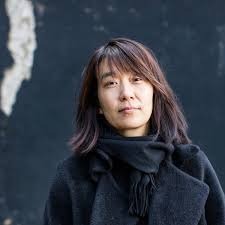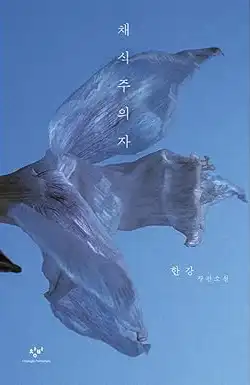Han Kang
강 , 한
Han Kang is a celebrated South Korean author whose lyrical, psychologically intense prose has earned her global acclaim. Born on November 27, 1970, in Gwangju, she moved to Seoul as a child and studied Korean literature at Yonsei University. She began publishing poetry and fiction in 1993. Her work often explores historical trauma, violence, the human body, and the fragility of life. Her breakthrough novel The Vegetarian (2007) won the International Booker Prize in 2016. Other notable works include Human Acts, The White Book, Greek Lessons, and We Do Not Part. In 2024, Han Kang became the first Asian woman and first Korean author to win the Nobel Prize in Literature, honored for her “intense poetic prose that confronts historical traumas and exposes the fragility of human life”
هان کانگ نویسندهٔ برجستهٔ اهل کرهٔ جنوبی است که با نثری شاعرانه، روانشناختی و جسورانه، به یکی از چهرههای جهانی ادبیات معاصر تبدیل شده است. او در 27 نوامبر 1970 در گوانگجو به دنیا آمد و در نوجوانی به سیول مهاجرت کرد. تحصیلات خود را در رشتهٔ زبان و ادبیات کرهای در دانشگاه یونسه به پایان رساند و از سال 1993 با انتشار شعر و داستان وارد عرصهٔ ادبیات شد. آثار او اغلب به بررسی تروماهای تاریخی، خشونت، بدن انسان، و شکنندگی زندگی میپردازند. رمان گیاهخوار (2007) نقطهٔ عطفی در کارنامهٔ او بود که در سال 2016 جایزهٔ بینالمللی بوکر را برایش به ارمغان آورد. از دیگر آثار مهم او میتوان به اعمال انسانی، کتاب سفید، درسهای یونانی و ما جدا نمیشویم اشاره کرد. در سال 2024، هان کانگ بهعنوان نخستین زن آسیایی و نخستین نویسندهٔ کرهای، جایزهٔ نوبل ادبیات را برای «نثر شاعرانهای که با تروماهای تاریخی روبهرو میشود و شکنندگی انسان را آشکار میسازد» دریافت کرد



